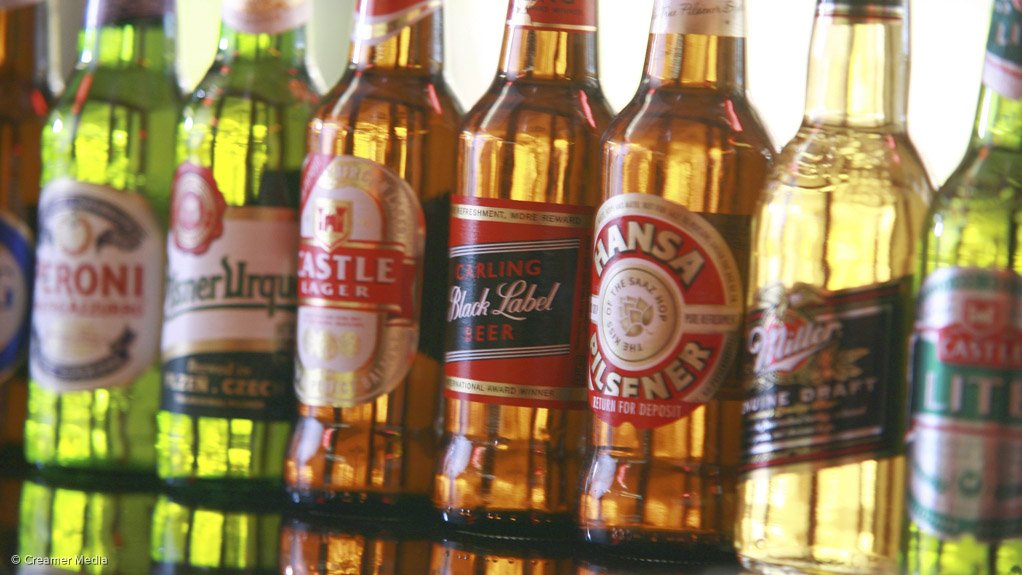Excessive beer taxation is driving illicit alcohol trade, BASA says
Excessively high beer taxation levels are driving consumers to support the illicit alcohol industry, a situation that needs to be rectified by lowering beer excise taxes as soon as possible, Beer Association of South Africa (BASA) CEO Charlene Louw has said.
“Beer is one of those beverages that is highly taxed through excise. It's struggling and it's a global concern. High taxes are eating away at the margins of manufacturers and it's opening up a market for illicit alcohol and delegitimising the industry in many respects,” she told delegates at the 2025 Africa Brewing Conference, in Johannesburg, on June 3.
“We have very stern conversations with Finance Minister [Enoch Godongwana]. We're trying to sustain this industry, because this is an industry that sustains many jobs in South Africa, which is one of those countries that has a significant unemployment rate. If you did away with this sector, that would have a huge impact on our economy,” she said.
Louw noted that a recent study found that about 38% of the price of a 330 ml bottle of beer went toward taxation. This figure included both value-added tax (VAT) and excise duties.
“That is significant and it has a knock-on effect on illicit alcohol. People's pockets are stretched. While we're seeing that there is some growth within disposable income, it's not to the extent that we would want it to be.
“And so, when people are pinched, what happens? They resort to illicit alcohol. This is what we're sitting with right now in terms of statistics for illicit alcohol. While spirits might be the more prevalent alcohol that finds itself actually within the sphere of this, it does have a knock-on effect on beer,” she said.
Nonetheless, she said the beer industry had shown resilience despite punitive taxation and reduced consumer spending capacity.
“Research is showing us that this is a market that is growing and, notwithstanding some of the challenges, is quite resilient,” she said.
She stated that, to sustain and grow the beer economy and to strengthen the broader industry ecosystem, there needed to be continued efforts to align excise tax policies with economic conditions. She said that lobbying the government on this matter must continue.
Louw said there were opportunities to enhance South African production capacity, which would in turn support industry resilience and cost control. She said there was also potential to increase the agricultural sector’s contribution to GDP by supporting local sourcing efforts.
She emphasised the role of township taverns and local retailers, stating that these establishments were vital downstream drivers in the beer value chain.
“Let’s work together to formalise, train, and finance taverners, enabling them to grow safely and sustainably,” she said.
She added that innovation among equipment manufacturers in areas such as energy and water efficiency, as well as the automation of processes, needed to be made more accessible to all brewers. This included small-scale and craft beer producers, she said.
Louw noted that the South African beer market was valued at $3.60-billion in 2024 and was projected to grow to about $5.31-billion by 2030. This forecast represented a compound annual growth rate of 6.75% during the period.
She said the local beer industry had contributed $5.2-billion, or R94-billion, to the country’s GDP in 2023. This figure represented 1.4% of national GDP for that year.
She pointed out that the industry had also contributed $3.9-billion, or R70.2-billion, in tax revenue, with the majority of this amount derived from VAT. According to her, this contribution accounted for 4.2% of government revenue.
Louw said that, since 2019, the beer industry’s GDP contribution had increased by 35.9%, while tax revenue derived from the industry had grown by 33.7%.
She said the beer industry supported about 210 000 jobs, which represented 1.3% of total national employment. This positioned beer as the eighteenth largest sector in South Africa in terms of employment numbers.
She stated that the beer sector had spent R33-billion, or $1.924-billion, with local businesses. Of this, R7.6-billion was spent on business services, R6.7-billion on packaging materials, and another R6.7-billion – equivalent to about $390.6-million – on transportation and storage.
Louw said the beer industry added more than R2.2-billion a year to South Africa’s agricultural GDP and supported 38 000 jobs in the agricultural sector. She added that 95% of raw materials used in beer production were sourced locally.
She said that, in the retail sector, the beer industry supported more than 42 000 jobs, including positions in taverns and liquor outlets. In addition, restaurants, bars, pubs, clubs and sports arenas that sold beer contributed to 68 000 jobs, which amounted to 0.4% of total national employment.
She noted that the industry’s expenditure on equipment and metal products amounted to an estimated R2-billion.
“This is a significant industry that needs to be protected. Wishing the sector away is not a viable option given the significance of its contribution to GDP. There's a big gaping hole in our fiscus and our contribution is filling that hole to some extent,” she said.
“With the right level of support, this is an industry that can significantly contribute to the country's economic restoration agenda.”
Article Enquiry
Email Article
Save Article
Feedback
To advertise email advertising@creamermedia.co.za or click here
Press Office
Announcements
What's On
Subscribe to improve your user experience...
Option 1 (equivalent of R125 a month):
Receive a weekly copy of Creamer Media's Engineering News & Mining Weekly magazine
(print copy for those in South Africa and e-magazine for those outside of South Africa)
Receive daily email newsletters
Access to full search results
Access archive of magazine back copies
Access to Projects in Progress
Access to ONE Research Report of your choice in PDF format
Option 2 (equivalent of R375 a month):
All benefits from Option 1
PLUS
Access to Creamer Media's Research Channel Africa for ALL Research Reports, in PDF format, on various industrial and mining sectors
including Electricity; Water; Energy Transition; Hydrogen; Roads, Rail and Ports; Coal; Gold; Platinum; Battery Metals; etc.
Already a subscriber?
Forgotten your password?
Receive weekly copy of Creamer Media's Engineering News & Mining Weekly magazine (print copy for those in South Africa and e-magazine for those outside of South Africa)
➕
Recieve daily email newsletters
➕
Access to full search results
➕
Access archive of magazine back copies
➕
Access to Projects in Progress
➕
Access to ONE Research Report of your choice in PDF format
RESEARCH CHANNEL AFRICA
R4500 (equivalent of R375 a month)
SUBSCRIBEAll benefits from Option 1
➕
Access to Creamer Media's Research Channel Africa for ALL Research Reports on various industrial and mining sectors, in PDF format, including on:
Electricity
➕
Water
➕
Energy Transition
➕
Hydrogen
➕
Roads, Rail and Ports
➕
Coal
➕
Gold
➕
Platinum
➕
Battery Metals
➕
etc.
Receive all benefits from Option 1 or Option 2 delivered to numerous people at your company
➕
Multiple User names and Passwords for simultaneous log-ins
➕
Intranet integration access to all in your organisation



















